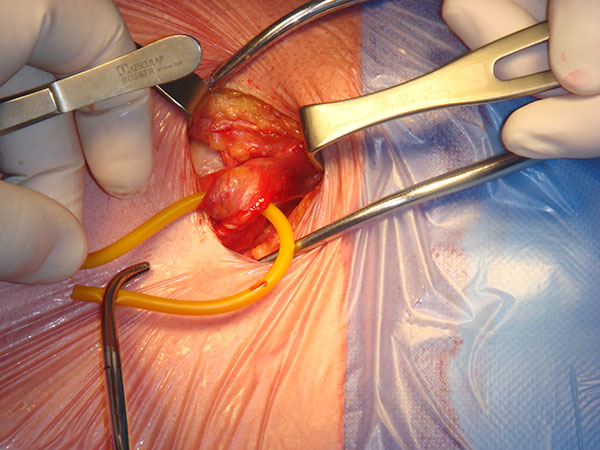
What is a Hernia?
A hernia is a condition when an organ pushes through an opening in the weakened or ruptured muscle or connective tissue that holds it in the place. This condition causes severe pain in the abdomen.
Almost 70 percent hernias are abdominal hernias. Among those most commonly occurring is when intestine squeezes through a weak spot in the abdominal area.
What are types of a Hernia?
Inguinal Hernia (inner groin)
This is the most common type of hernia. It occurs when intestine pushes through the weakened spot in an inguinal canal.
The inguinal canal is situated in the groin. Through it passes spermatic cord which holds up the testicles in men. In women, this canal supports a ligament that holds the uterus in place.This type is found more common in men than men.
Hiatal Hernia (upper stomach)
It occurs when part of the stomach protrudes through weakened hiatus. A hiatus is an aperture in the diaphragm through which esophagus i.e. food duct passes.
Incisional Hernia
Sometimes abdominal wall becomes weak due to surgery and intestine enters into such weakened spots causing an incisional hernia
Femoral Hernia (outer groin)
This hernia happens when intestine spills through the canal that carries femoral artery (blood vessel) into upper thigh. Its occurrence is more prominent in women than in men.
Umbilical Hernia
Mostly found in babies under 6 months where intestine pushes into the abdominal wall near the belly button.

What causes a Hernia?
A hernia typically occurs due to damage happened to muscle because of weakness or strain. Common causes of such strain are persistent sneezing or coughing, lifting weights, obesity, pregnancy, constipation. Sometimes muscles weaken as a result of aging or they may rupture in surgery or injury causing a hernia.
An incorrect lifestyle like lack of exercise, sedentary work, heavy smoking, drinking alcohol, poor nutrition, irregular dietary habits may invite a hernia.
What are symptoms of a Hernia?
The main symptom is bulge formed on the skin over the affected abdominal area. Such bulge subsides after lying down.
The Pain felt in abdomen, pelvis and testicle area.
Heavy feeling in abdomen accompanied by constipation or blood in the stoolThe Pain felt in abdomen or groin while lifting or bending over.
The Pain felt in abdomen or groin while lifting or bending over.
How a Hernia Surgery is done?
Surgery begins with giving patient general anesthesia which makes him completely unconscious during the surgery.
Four Incisions of 5-10 mm diameter are made in the abdominal wall.
Through these incisions a special tube viz. cannula is inserted. Through cannula, Carbon Dioxide is pumped into the abdomen causing it to inflate. This inflated abdomen helps the surgeon to reach the location of a hernia and gives space to perform surgery.
After this the surgeon inserts special mesh to hold the protruded organ in its original place with the real-time images transmitted by Laparoscope.
Finally, incisions are cleaned, closed and dressed.

How long does one need to stay in the Hospital after Hernia Surgery?
This laparoscopic surgery requires very short hospital stay which may extend to 4-5 days.
Full recovery from surgery takes about four to six weeks.

